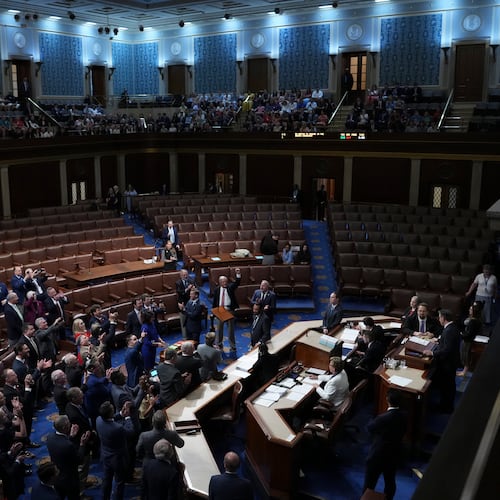I’ve practiced law, led businesses, and worked in both Fortune 500 and privately held companies. In my 25 years’ experience, truck drivers are by far the hardest working but most misunderstood and underappreciated group of professionals I have ever encountered.
Truck driving is an extremely difficult profession. Drivers are away from their families for days and weeks at a time. They navigate our increasingly crowded but underfunded and oft-decaying highway system. They work hard to meet customer expectations through safe and on-time delivery. Drivers are subject to a growing mountain of regulations that make an industry like banking look like a walk in the park.
Now, add this to the negative media about trucking ― nonstop ads and billboards that vilify the profession, even an ad portraying trucks as “serial killers.” News stories cover the accidents but rarely report truck driver heroics that occur every day on our roads. Consider that accidents involving trucks are on display for public view, unlike other industrial accidents that occur out of the limelight and within the yellow lines of a manufacturing plant.
Is it any wonder that we have a chronic truck driver shortage? The industry is projecting a shortage of 250,000 drivers by 2020. As a society, we are chasing people out of the field. At the same time, every one of us depends on trucks to deliver all that we own. Nothing that goes to market is untouched by a truck. The trucking industry cannot change these perceptions or the worsening driver shortage alone.
Collectively, we must renew our respect for truck drivers. The ultimate respect we can show is a renewed commitment to highway safety. Rules and regulations, while critical, play a surprisingly small part of creating a truly safe highway system. Some would like to think that we can magically impact safety with more rules, regulations and government. This is a fallacy. Regulations only spell out the minimum that is required. True safety occurs only when each of us modifies our individual behavior.
My company has cameras mounted in all of our trucks. I could share the horror stories that we see every day. You can do your part by eliminating distractions when driving, putting down the cell phone and understanding that a big rig needs more space and distance to brake than a car. These small but significant behavior changes will surely be appreciated by the professional driver who may be delivering lifesaving equipment to the hospital across town.
We further need to recognize that driver pay must increase to attract the best people to this profession. While this would impact freight cost, low wages (as compared to other comparable professions) compound our inability to attract new drivers to the industry. And, if we cannot turn this around, this is not an industry problem ― it is a national problem.
Respect is a two-way street. The trucking industry must continue to do its part to respect passenger vehicles. This is best accomplished by putting safety first through the creation of a safety culture. This type of culture recognizes, without compromise, that no load is more important than safety. Rushing to meet a deadline only creates accident risk. There is no regulation that can force you, me or anyone else to do the right thing when no one is looking. By creating a safety culture, we ensure that safety is a core value which may never be compromised for any reason.
The trucking industry is highly fragmented. While the vast majority of drivers are safe and professional, we know that a handful of bad drivers damage our industry’s reputation. We must continue to identify and eliminate this small but visible group of drivers from our industry. Any employee base will have its bottom performers. If you encounter this on the road, report the behavior. Make sure it is noticed. We need you to be our eyes and ears, but do not allow this to tarnish the reputation of our ambassadors of the roadways.
Let’s commit to permanent change in our treatment of professional truck drivers. Let’s work together to recognize that driving is a noble calling. Let’s come together to create a societal level of respect which is vital to attracting the next generation of Americans into this profession.
Because we all share the road, we can all do our part. And, if it weren’t for these drivers, the rest of us would be hungry and naked.
About the Author
Keep Reading
The Latest
Featured


